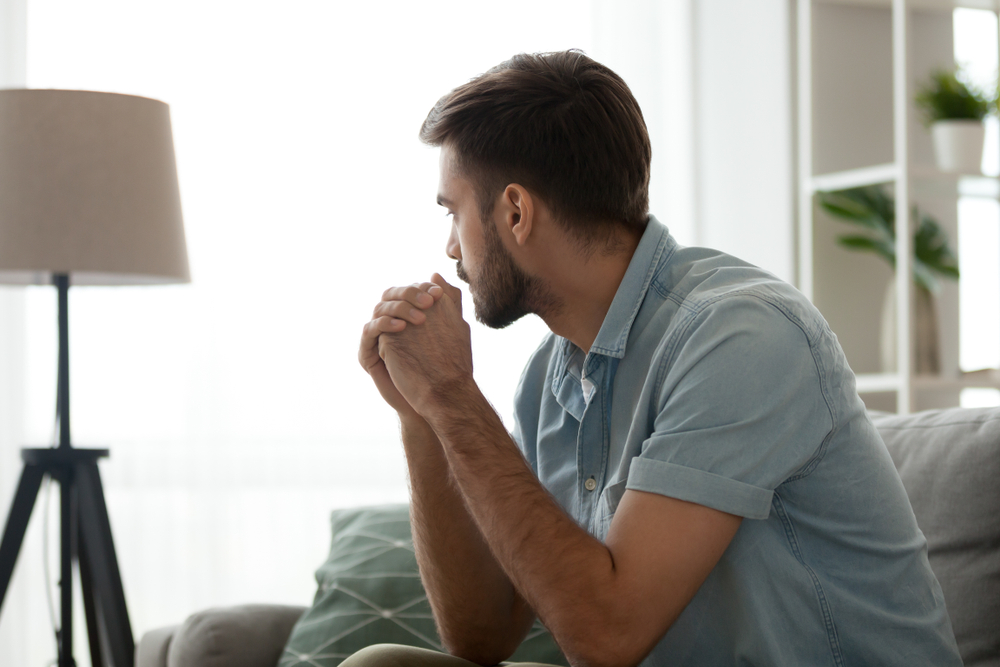Atheism, the disbelief or lack of belief in the existence of God or gods, comes with its own set of freedoms. While many aspects of life remain the same for atheists as for anyone else, there are certain things they simply don’t have to worry about.
1. Atheists don’t have to worry about going to hell.

Without a belief in an afterlife or divine judgment, atheists are free from the fear of spending eternity in hell. This lack of existential dread allows them to focus on living their lives to the fullest in the present moment, without worrying about potential consequences in an unknown realm.
2. Atheists don’t have to attend religious services.

Sundays are just another day of the week for atheists. They can sleep in, pursue hobbies, spend time with loved ones, or simply relax without the obligation of attending church, mosque, or temple. This freedom offers more time for personal pursuits and a less structured weekend.
3. Atheists don’t have to follow religious dietary restrictions.

No fasting during Ramadan, avoiding pork or shellfish, or abstaining from meat on Fridays. Atheists can enjoy a wide variety of culinary delights without worrying about dietary rules dictated by religious doctrine. This opens up a world of flavors and culinary experiences.
4. Atheists don’t have to tithe or make religious donations.

While charitable giving is certainly encouraged, atheists aren’t obligated to donate a portion of their income to religious institutions. This can free up financial resources for other causes they find meaningful, such as environmental protection, education, or social justice initiatives.
5. Atheists don’t have to seek divine guidance for decision-making.

Instead of relying on prayer or religious texts, atheists use critical thinking, logic, and evidence-based reasoning to make decisions. This approach encourages a sense of personal agency and responsibility, empowering individuals to take ownership of their choices and their lives.
6. Atheists don’t have to worry about religious clothing requirements.

No head coverings, specific attire, or restrictions on jewelry. Atheists can dress however they please, expressing their personal style without adhering to religious dress codes. This freedom allows for greater individuality and self-expression.
7. Atheists don’t have to reconcile scientific discoveries with religious beliefs.

Evolution, the Big Bang theory, and other scientific advancements pose no conflict for atheists. They can embrace the findings of science without feeling the need to reconcile them with religious dogma. This allows for a greater understanding of the natural world and a more evidence-based worldview.
8. Atheists don’t have to fear divine retribution for their actions.

Without a belief in a god who punishes or rewards behavior, atheists are free to make choices based on their own moral compass and ethical considerations. This encourages personal responsibility and a focus on the consequences of actions in the real world, rather than potential divine judgment.
9. Atheists don’t have to learn complex religious texts.

They can spend their time reading literature, philosophy, science, or any other subject that interests them, without feeling obligated to study scriptures or theological texts. This opens up a world of knowledge and diverse perspectives, enriching their intellectual lives.
10. Atheists don’t have to explain their lack of belief to others.

Just as believers aren’t required to justify their faith, atheists shouldn’t feel compelled to defend their lack of belief. It’s a personal choice that deserves respect and understanding, regardless of others’ opinions or beliefs.
11. Atheists don’t have to navigate complex religious hierarchies or power structures.

They can engage with their communities and social circles without worrying about appeasing religious leaders or adhering to strict social norms dictated by religious institutions. This allows for more egalitarian relationships and a greater sense of personal freedom.
12. Atheists don’t have to fear social ostracism for questioning religious teachings.

They can freely express doubts, skepticism, or criticisms of religious claims without fear of being shunned or excluded from their communities. This encourages open dialogue, critical thinking, and a deeper understanding of different perspectives.
13. Atheists don’t have to reconcile their sexuality or gender identity with religious doctrine.

They can embrace their authentic selves without worrying about conforming to religious teachings that may condemn or restrict certain sexual orientations or gender expressions. This promotes self-acceptance, personal authenticity, and a greater sense of well-being.
14. Atheists don’t have to limit their worldview to religious interpretations.

They can explore a wide range of philosophical, scientific, and cultural perspectives, drawing inspiration and wisdom from diverse sources. This open-mindedness fosters intellectual curiosity, creativity, and a deeper appreciation for the complexity and beauty of the human experience.



